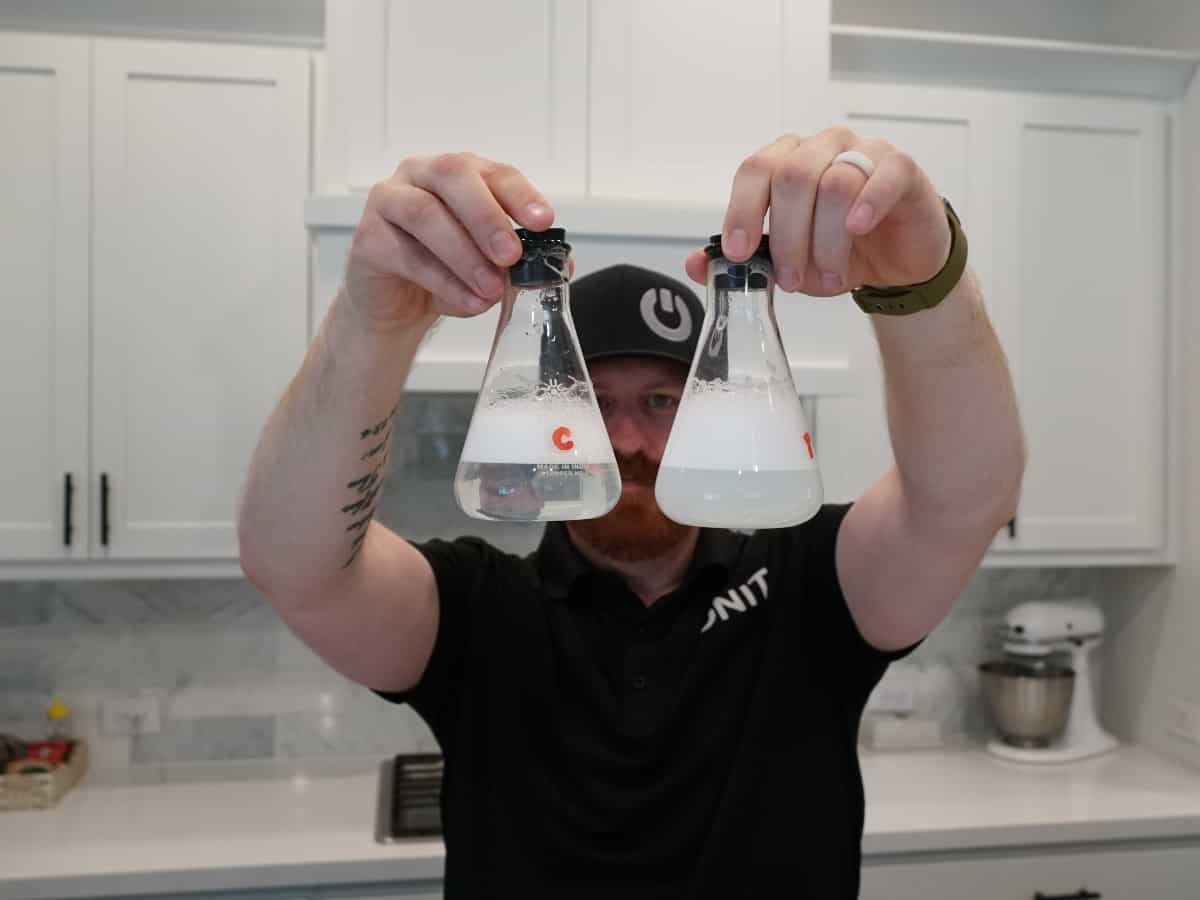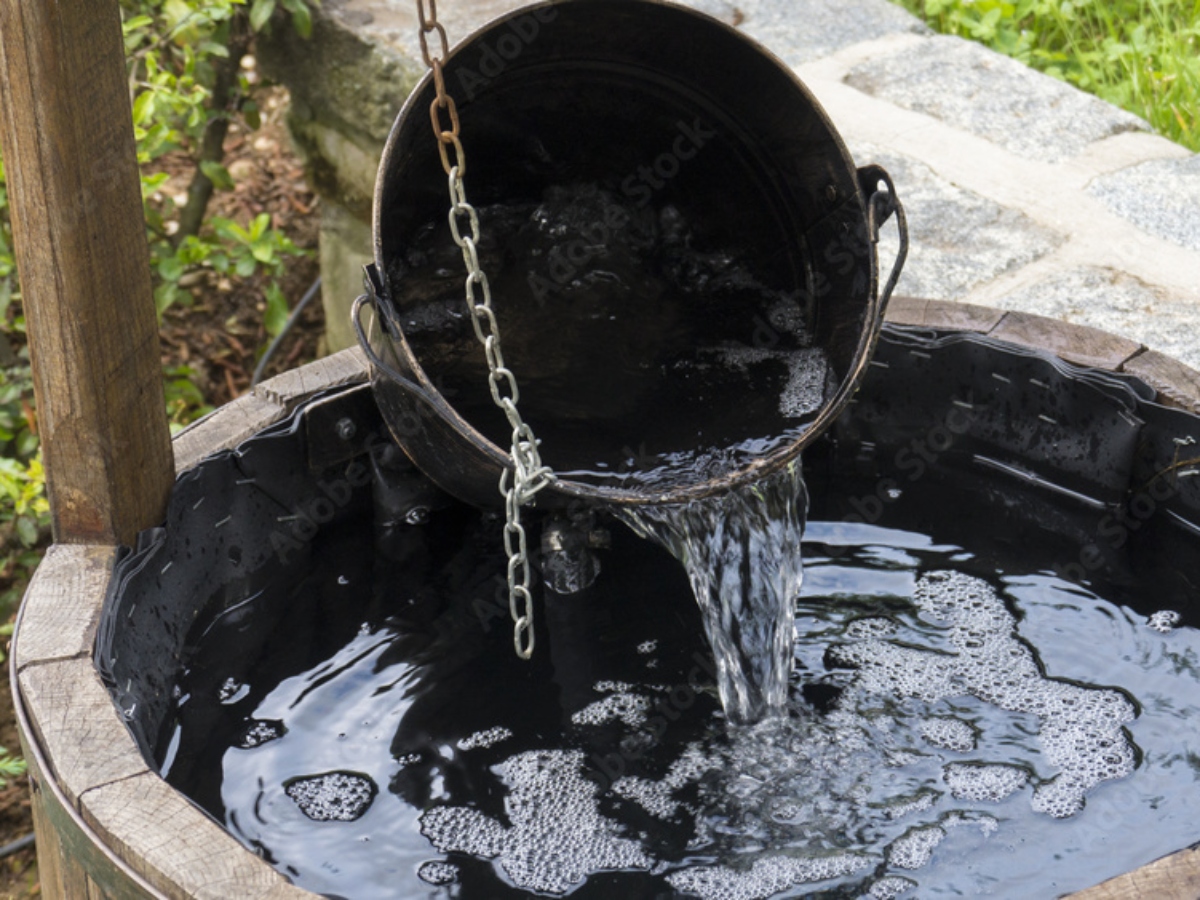If you have a well, you’re solely responsible for maintaining it, as the Safe Drinking Water Act (SDWA) does not regulate private wells. Therefore, you should develop a well water maintenance schedule and stick to it to ensure water quality and good health. A schedule will help you track when you need to service your well, or schedule appointments with professionals. It will also help you spot any potential issues before they become too big to handle.
Routine inspection and maintenance ensure your water is safe for consumption, boosts your well’s performance, and extends its useful life. Some of the things that you should include in your well water maintenance schedule are:
- Regular water testing
- Cleaning the well
- Periodic inspections of the well
Keep reading to learn well water maintenance tips and how to develop a schedule that works for you.
How to Create a Schedule for Well Water Maintenance
Before creating a private well maintenance schedule, you should understand the environment surrounding your well. Some wells may need more maintenance than others. You should also ensure that the plan you come up with does not under-maintain or over-maintain your well. Here are ways you can create a schedule:
Decide How Often You Want to Service Your Well
Experts advise annual well evaluation and maintenance from a licensed well water system professional. However, that does not mean you have to wait a whole year before doing some maintenance to your well. This is where a maintenance schedule comes in.
A schedule should involve a plan for maintaining the well system, including the water quality, wellhead, water treatment devices, and septic system. Here are some things to think of when identifying when your water system needs maintenance:
- Age of your well: If your well water system is nearing its service life, it may experience regular malfunctioning, unlike when it’s new. You may experience frequent water contamination, failing pumps, stuck check valves, failing pressure tanks, and more. Servicing the well and its distribution unit may prevent an excessive failure of the well and its components.
- Location of your well. If you reside in an area that experiences surface runoffs, flooding, fracking, pesticides, and other chemical pollution, well maintenance is crucial. Testing and treating your water is essential to confirm your water is not contaminated.
- Water quality. Even though private drinking water wells are not required to undergo routine inspections like public water sources, some situations make it necessary. If you experience regular water pollution, it’s crucial to do testing more often, mainly if the source of the problem still needs to be determined. In cases where your well has brackish water, turbidity, smell, or any other aesthetic issues, you can schedule monthly testing.
- Seasons: Different weather impacts your water quality. In addition, snow, rain, and hot temperatures can negatively affect your well water system. You can set well water maintenance, for every season and, most importantly, after the winter.

Create Reminders
Once you’ve identified how often your well needs maintenance, having reminders is a great step to avoid missing appointments. You can use your calendar or mobile phone to set alerts. In addition, you can create a spreadsheet to store on your computer or print and hang it somewhere visible.
Up Automatic Maintenance
One way to keep on top of your maintenance schedule is to set up automatic maintenance. You can do this by hiring a service company to come out and do the work for you. This helps you remember the maintenance schedules, especially if you’re busy with other things such as work or children.
Keep the Records Well
Keeping records gives you reference material, including well type, when it was last serviced or tested, or the date it was built. Keep the records safe by creating a well maintenance log. This information will not only be helpful to your service provider during maintenance, but it will also help you create a proper maintenance plan.
What Goes into a Well-Water Maintenance Schedule?
The schedule you create will act as a water well maintenance checklist. It will include monthly and yearly tasks, whether DIY maintenance or professional ones. Here are some maintenance services to include in the schedule:
Well Inspection
A water well inspection evaluates the condition of a water well’s structure, including its components and surrounding area. The assessment can help you determine whether your well has any problems and what needs to be done to correct them.
The inspection for well water involves:
- Visually inspect your well system, including the surrounding environment. This should happen several times a year. A well inspector will check to see whether the well cap and casing are loose, cracked, or have other damages. In addition, they will check the annular seal, pressure tank, pipe pump performance, and filters and check water levels and flow. You can sometimes do your inspection, especially on the components above the ground, such as the casing or cap. You should also ensure the area surrounding your well is free from any pollutants that can contaminate your water. Remove grasses that have grown around the well (at least three meters).
- Service the components and ensure water well rehabilitation.
- Chlorinate your well at least once every year. However, if you have sulfur in water, chlorinate your well more often until you eliminate it. You should clean your well after every year to remove accumulated debris and sediments.

Well Water Testing
Well water testing helps determine whether it contains contaminants such as coliform bacteria, metals, and nitrates. It also shows water pH levels and volatile organic compounds (VOCs). Testing your water is the only sure way to ensure you and your family are protected against any health issues that may arise from drinking contaminated water.
According to the U.S. Environmental Protection Agency (EPA), test your well water at least once a year. However, you may find some situations that necessitate testing your water more often. Test your water if:
- There has been flooding in your area.
- You suspect your water is contaminated.
- There’s a change in water taste, color, or smell.
- You’ve just moved in.
- There has been a construction site, chemical spillage, or septic malfunction near your home.
- Your system is prone to contamination.
- There’s a newborn or pregnant woman in your household.
- Retest after any treatment method.
You can opt for DIY water testing. However, having a professional do it is more beneficial as they will interpret the results and advise solutions.
Water Treatment System
Let a professional do annual checkups of your water treatment systems, including filters and softeners. You can also have a schedule for cleaning the systems to remove sediment buildup. How often you flush your system depends on your well. For example, if your water has a lot of sediment, you’ll need to clean the system more often.
Septic System Maintenance
Malfunctioned septic systems are among the most common reasons for well water contamination. That’s why maintenance of these systems is important in your well water maintenance schedule. In addition to regular maintenance, a reputable company should inspect your septic system annually. This will ensure that your septic field is functioning correctly and that there are no leaks or blockages in the line. The inspection should also include a check for any damage caused by the previous season’s heavy rains or snowfall. In addition,
- Repair the tank to prevent blockages and leakage, which can cause underground water pollution.
- Service the components and replace any damaged ones.
- Check the septic capacity
- Drain the pump after three to five years, depending on household size.

What Are the Costs for Well Water Maintenance?
The average private well maintenance cost is $150 to $350 per year. However, this depends on the size of your well and the repairs that need to be done. You can expect a bill that ranges from a few hundred dollars to a few thousand dollars per year if your pump requires repair.
Of course, an excellent plan to keep your costs down is to prevent problems before they start. That means having your well water inspected regularly is a preventive measure rather than letting your whole system malfunction. If you have issues, though, the sooner you catch them, the faster you act, and the lower your costs will be. Having a well maintenance schedule is one way to catch small minor problems and act on them early.
Maintain Your Well Water Well with ONIT Home
A well water maintenance schedule will ensure that your well water is clean, safe, and in good shape. You’re at risk of illness if you don’t maintain a private well system. As the saying goes, “prevention is better than cure”; preventing your water well system from malfunctioning can save you money. In addition, maintenance costs are cheaper than repair costs. So a maintenance schedule can help you save money by keeping your well’s health and that of your family.
At ONIT Home, keeping you healthy while saving money is our promise. We offer well maintenance services at an affordable price. We also provide water filtration systems to ensure your well water is potable. Call us now at 1-833-433-0331 to schedule an appointment for your well maintenance. You can also reach us for any query regarding our water treatment systems. Need clean water? We are ONIT!



